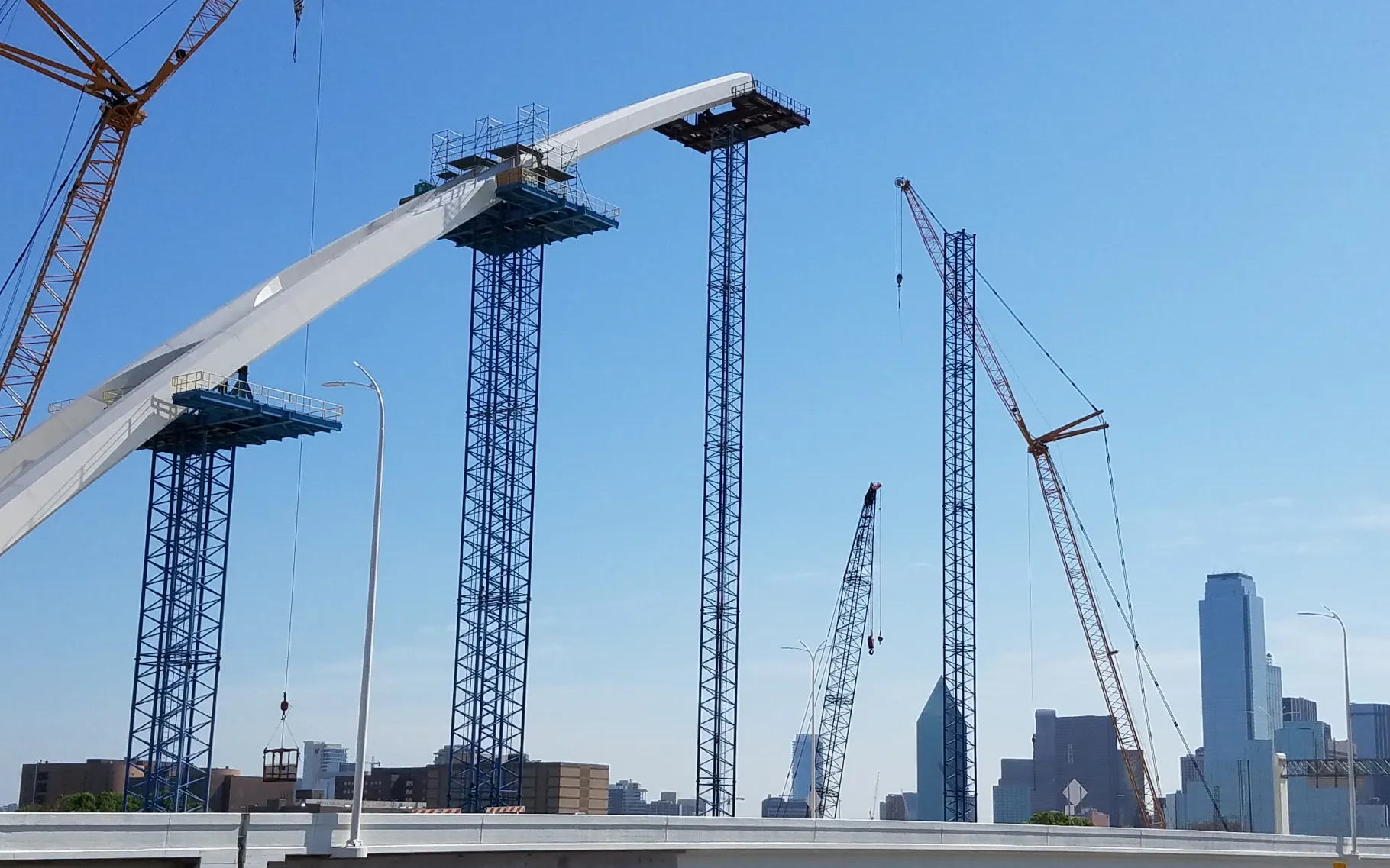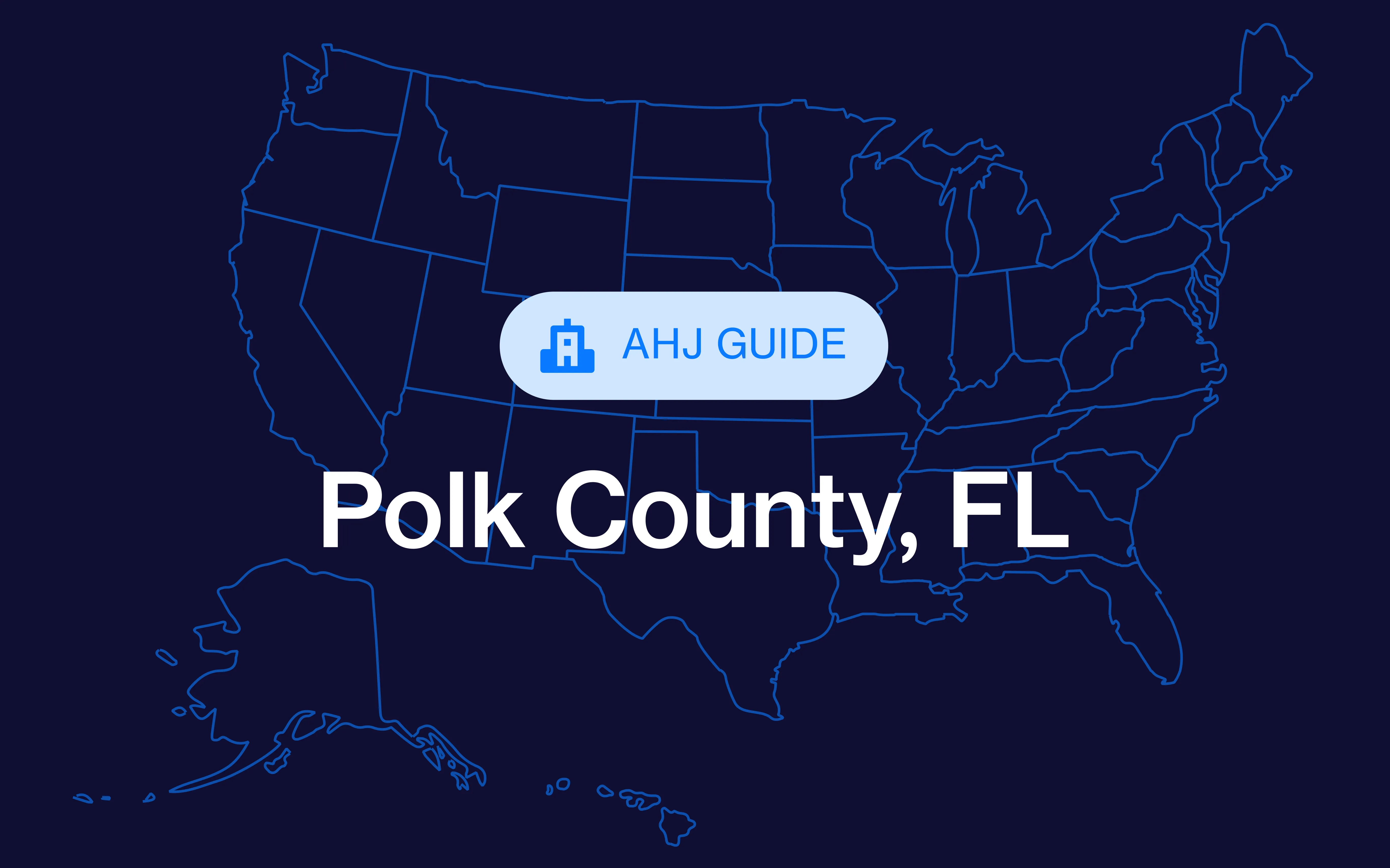Even a permitting pro can get tripped up by specialized permits. Certain complex projects often have more rigorous permitting requirements, involving multiple approval stages and extensive documentation that significantly extend the timeline beyond standard submission processes.
Fortunately, technological advancements like building permit software are simplifying these complex processes. Permitting software automates documentation, tracking, and communication, enabling construction teams to navigate specialized permitting more efficiently and accurately.
In this article, we explore various specialized building permits, their unique requirements, and strategies for streamlining these kinds of construction projects.
Types of complex construction permits
- Demolition permit: Used for projects that require dismantling a structure. These can be extremely dangerous projects, so they often require specific permits to ensure the project doesn’t affect any surrounding structures, waste is properly disposed of, and the team is using the correct safety protocols.
- Electrical permit: Electrical installations and repairs must meet local requirements to prevent electrocution, electrical fires, and other dangerous system failures.
- Plumbing permit: Incorrect plumbing can lead to structural defects, water contamination, flooding, mold, and other issues that can make a structure inhospitable. Plumbing permits prevent this type of damage.
- HVAC permit: If not installed correctly, HVAC systems can lead to poorly ventilated buildings, which can become safety issues in the future.
- Emergency systems permit: Necessary for installing essential protection systems, such as sprinklers and alarms. These are especially important for larger buildings, such as multi-unit apartment buildings or large offices.
- Environmental permit: Designed to help protect natural resources and ecosystems.
- Structural alteration permit: Required when modifying structural elements, like load-bearing walls or foundations.
- Hazardous materials removal permit: If a project requires removal of hazardous materials, such as asbestos, it’s important to ensure that it is disposed of properly to protect workers, citizens, and the environment.
Challenges in obtaining specialized permits
If you find out you need a specialized building permit for your project, you’re up against a potentially arduous process. Here are some of the challenges of obtaining complex permits:
- Complex documentation requirements: Specialized permits often demand extensive additional documentation and detailed plans. For example, demolition projects typically require comprehensive safety protocols and containment strategies beyond standard permit applications.
- Varying regulations across jurisdictions: Regulations differ significantly between municipalities, creating complications for projects across jurisdiction boundaries. Always verify the specific requirements for your project's location to ensure proper documentation for all necessary permits.
- Departmental review bottlenecks: Complex permits often have to be reviewed by multiple specialized departments beyond the standard permitting office. These additional approval layers can significantly extend the timeline compared to conventional permits.
- Stakeholder communication challenges: Specialized permits involve more experts and stakeholders throughout the approval process. Without structured communication systems, critical information can be lost between parties, potentially causing substantial delays.
How building permit software helps manage complex permits
Recognizing the challenges of specialized permits, building permit software helps ensure a smoother submission process.
By implementing software like PermitFlow, your team can expect these benefits:
- Centralized documentation management: Building permit software provides a single source of truth for every project. This dramatically reduces the risk of missing or incomplete information during submission, ensuring comprehensive applications the first time.
- Real-time status updates: Instant notifications keep all stakeholders informed of application changes as they occur. This immediacy minimizes communication delays and ensures everyone works with the same up-to-date information, preventing costly misalignments.
- Automated compliance verification: Advanced software checks applications against local regulations, significantly reducing rejection rates. This feature helps ensure your application meets all requirements before submission, eliminating time-consuming resubmissions.
- Streamlined stakeholder communication: Beyond document management, permit software serves as a central communication hub for all permit-related discussions. This keeps conversations organized, accessible, and directly connected to relevant documentation.
Best practices for using permit software for complex permits
Once you invest in building permit software, there are a few best practices you can adopt to ensure efficiency and accuracy:
Leverage templates, pre-filled forms, and integrations
Construction teams that frequently pull complex permits should leverage customizable templates and pre-populated forms to eliminate redundant data entry. Integrate your permit software with existing workflow tools to create seamless information flows — automatically transferring data between systems, reducing manual entry requirements, and minimizing human error throughout your process.
Establish unified communication protocols
Implement a structured communication strategy to prevent information silos. Designate a central information repository, maintain consistent meeting schedules, and assign a dedicated coordinator to ensure all stakeholders remain aligned throughout the permitting process.
Maintain real-time data integrity
Ensure your entire team works with current, accurate data at all times. Building permit software with automatic real-time updates eliminates manual communication bottlenecks while ensuring all team members instantly receive critical updates — removing individual responsibility for information distribution while improving overall accuracy.
Submit complex permits with PermitFlow
PermitFlow offers a powerful solution to the challenges of specialized permits by streamlining the application process, automating compliance checks, and providing real-time updates on permit status. Our software improves accuracy and reduces the likelihood of application rejections. In addition, PermitFlow helps foster collaboration between contractors, regulators, and other stakeholders.
Want to learn how PermitFlow can help your team streamline the permit submission process? Talk to our permitting experts today to learn more.








